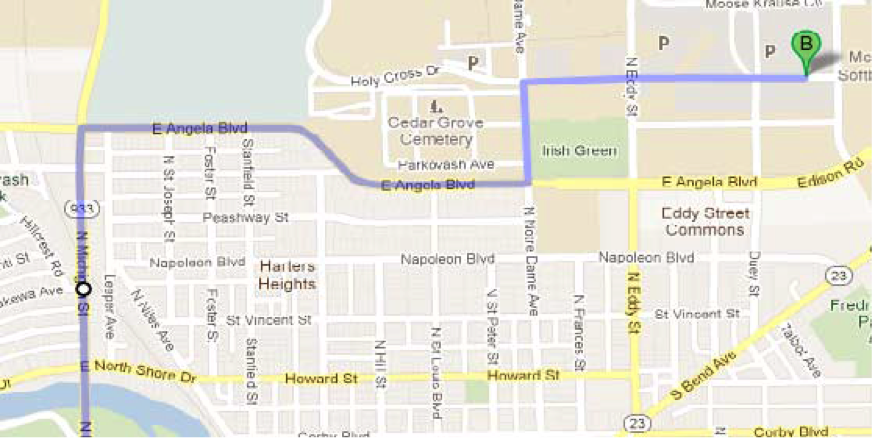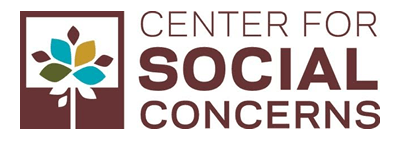Solidarity in Development: Empowering Agents of Change
This year’s conference theme, Solidarity in Development: Empowering Agents of Change, seeks to highlight the positive impacts individuals, organizations, and communities can have addressing the many global challenges of today's world. Pragmatic solidarity leads to action, engagement, and accompaniment beyond the traditional notion of solidarity as an attitude. Accompaniment provides an opportunity for the mutual exchange of knowledge and experience among development actors. This collaboration between all agents of change can bring about inclusive and sustainable development outcomes for a world facing innumerable issues, from a pandemic and climate crisis to international conflict and food insecurity.
Conference Program
|
KEYNOTE
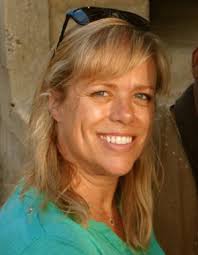 We are thrilled to invite Christine Beggs to serve as the HDC 2023 Keynote Speaker.
We are thrilled to invite Christine Beggs to serve as the HDC 2023 Keynote Speaker.
Christine Beggs is the Vice President of Global Research and Evaluation at Room to Read – an international education non-profit founded in 2000 that works in over twenty countries to create a world free from illiteracy and gender inequality. Christine brings over twenty years of experience in international development and the private sector. She oversees Room to Read’s global RM&E practice, providing technical assistance on research, leading the development of evaluation and measurement strategies, and directing global efforts to build and utilize evidence. Christine has served as the Principal Investigator for large-scale research projects focused on foundational literacy, youth development and girls’ education. Prior to joining Room to Read, Christine served as the Evidence Team Lead in the Office of Education at the United States Agency for International Development (USAID) in Washington D.C. where she directed monitoring and evaluation, strategic measurement and reporting, research, and M&E capacity building for the USAID education sector. Christine also managed a twenty-five-million-dollar impact evaluation contract focused on expanding the evidence base aligned with the USAID Education Strategy goals. Christine was a member of the USAID “Systems-Thinking” cohort and received specialized training in systems approaches to program design. She initiated USAID’s cost work within the education sector and has contributed to countless guidance documents and evidence products for the sector.
Christine is a current member of multiple working groups, including the Bill and Melinda Gates Foundation Science of Teaching Advisory Committee and the Interagency Network for Education in Emergencies Data Working Group. She co-founded and co-chaired the Building Evidence in Education (BE2) Donor Working Group and served as USAID’s representative to the UN Girls’ Education Initiative (UNGEI), the UNESCO Institute for Statistics (UIS) working group on education data and served as a member of the Education in Conflict and Crisis Network (ECCN) Steering Committee. She is an Emeritus Board Member of AGE Africa. Her country work experience includes DR Congo, Ethiopia, Ghana, Haiti, India, Kenya, Laos, Mali, Malawi, Mexico, Nepal, Rwanda, Senegal, South Africa, South Sudan, Sri Lanka, Tanzania, Uganda, Thailand, and Vietnam. Prior to working in international development, she co-founded and managed a private sector consultancy. Christine holds an MA from The Fletcher School of Law and Diplomacy at Tufts University.
HDC TEAM
Chairs
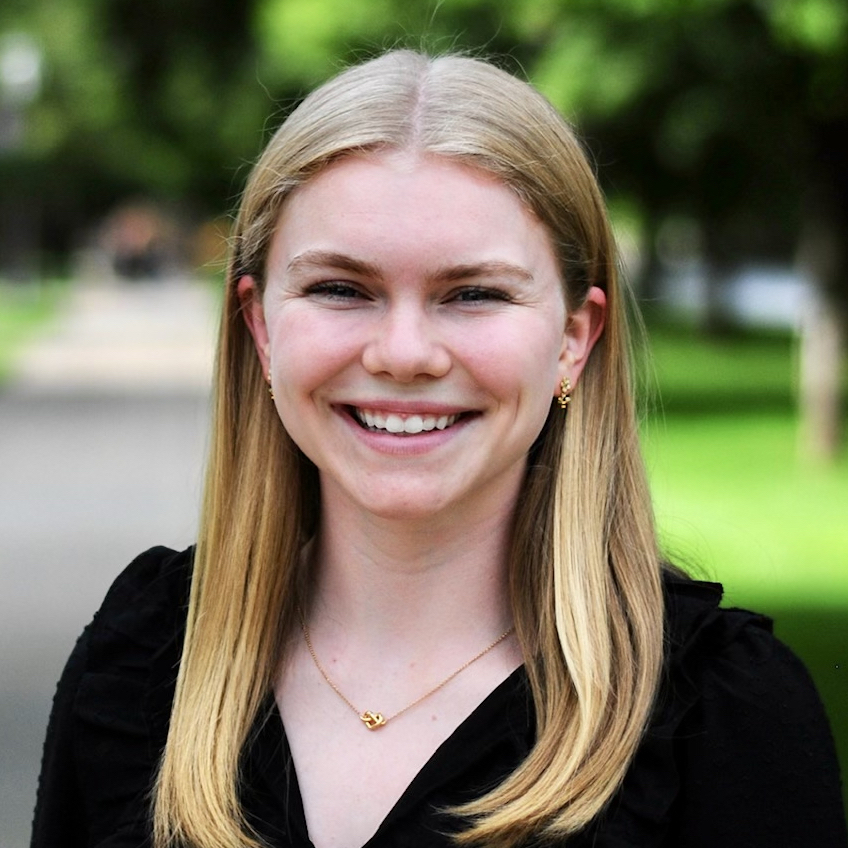
Maura Hogaboom - Conference Co-chair
Maura is a senior at Notre Dame from Arlington Heights, Illinois studying Economics and Pre-Health Studies with a minor in Poverty Studies. She is also a member of the Glynn Family Honors Program. Maura is a research assistant at the Lab for Economic Opportunities which seeks to evaluate poverty interventions to better understand what works in poverty alleviation. She also works in partnership with the Palliative Care Association of Uganda through the Center for Hospice Care in Mishawaka. Maura took part in the International Summer Service Program and remotely interned with Child Family Health International in Bolivia, researching adolescent pregnancy and mental health care in Bolivian populations. Previously, Maura worked with Chicago’s underserved communities through Esperanza Health Centers, and she is eager to pursue work in global public health in the future. After being a Co-Chair of the Liaisons Committee last year, Maura is excited to create an inclusive space for collaboration and dialogue with many presenters and attendees through HDC 2023!
Hannah Reynolds - Conference Co-chair
Hannah is a senior studying Economics and Global Affairs with a concentration in International Development and a minor in Education, Schooling and Society. On campus, she works for the Pulte Institute for Global Development as a research assistant on the Expanding the Reach of Impact Evaluation and Developing the Whole Child in Haiti projects and as a teaching assistant for the Data for Development course. This past summer she was a recipient of the Kellogg/Kroc Research Grant and conducted independent research on stakeholder value of vocational education for girls in northern Uganda. She is passionate about the intersection of international development and education and hopes to pursue a career in international education policy. After serving as the Liaison Co-Chair for last year's conference, she is excited to join the HDC team again and help create an engaging and exciting conference for both presenters and attendees!
Marketing
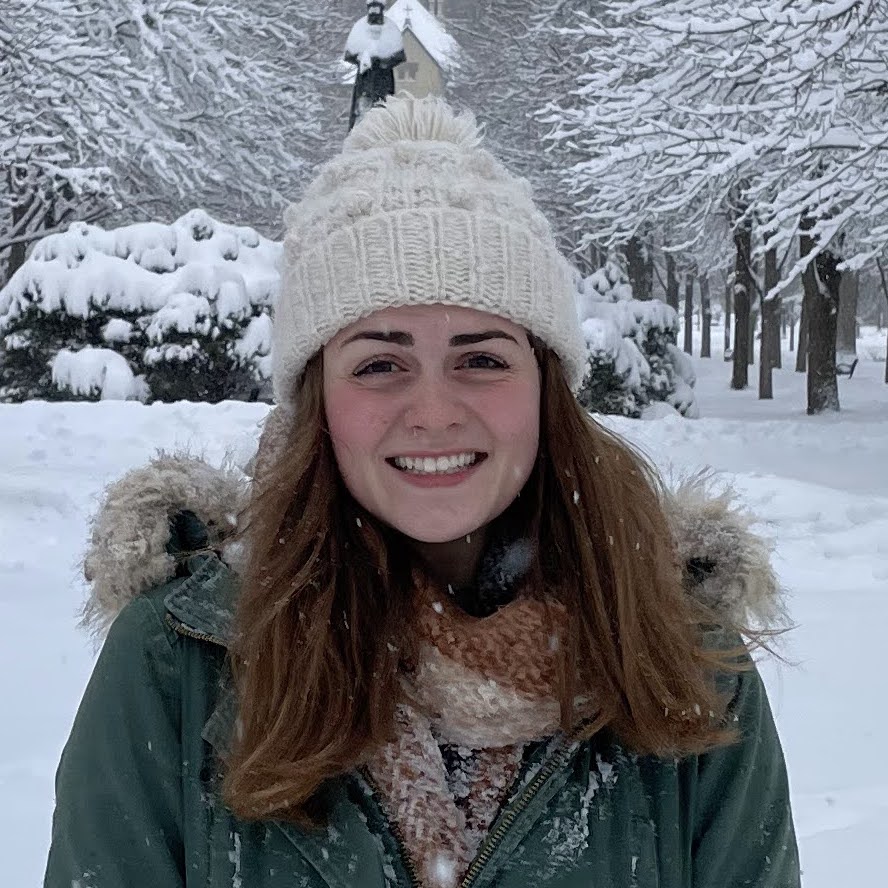
Annabelle Lake
Hello HDC! My name is Annabelle Lake and I am a senior living in Farley Hall as an RA. I study Marketing with minors in French and CST, and outside of classes, I'm involved with the Center for Social Concerns and I work in the career center! In my free time, according to my resume's “interests” section, I enjoy puzzles, baking, hand lettering, photography, babysitting, sunbathing, thrifting, exercising, and podcasts. Really excited to be involved with HDC this year!
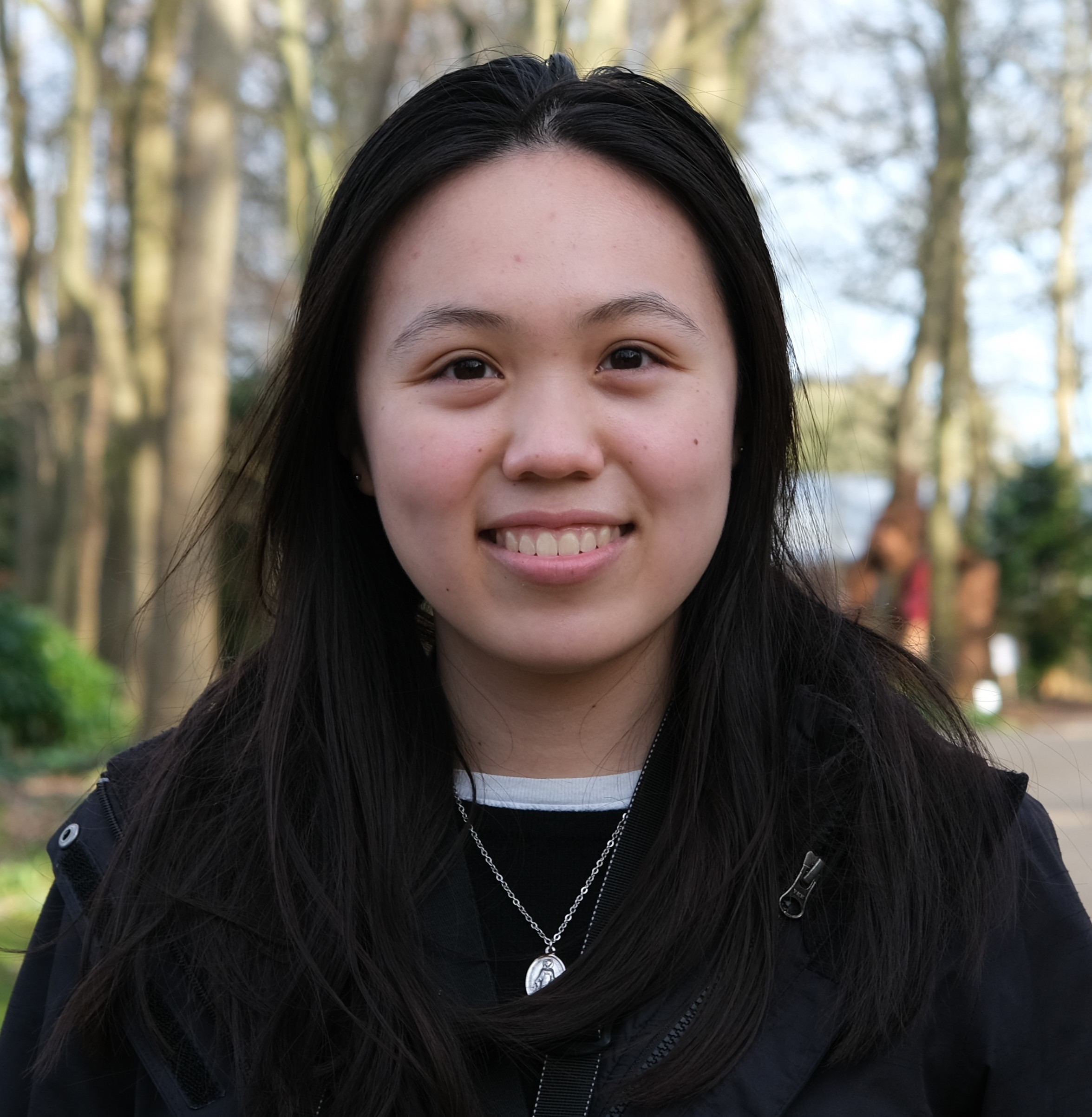
Claudia Tang
Claudia is a senior from Honolulu, Hawai’i, majoring in Business Technology. On campus, she is the design editor of Scholastic Magazine and is involved in Hawai’i club. She is also currently a research assistant for Professor Bergstrand’s Economic Integration Agreement database, and a senior fellow for internationalization. In her free time, she enjoys cooking for friends and fiber arts. Claudia is excited about being part of the HDC team and is looking forward to a great conference this spring!
Liaisons Committee
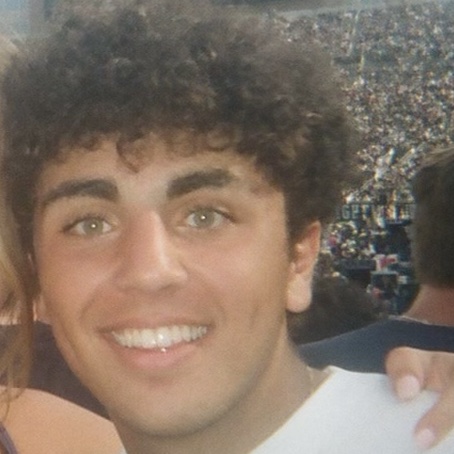
Nadim "Khouzi" Khouzam
I'm a sophomore living in Dillon Hall! I'm majoring in Neuroscience and minoring in Anthropology on the pre-med track. I'm from the greatest city in the U.S.A, Memphis, TN. I love to play sports, listen to music, and play the piano.
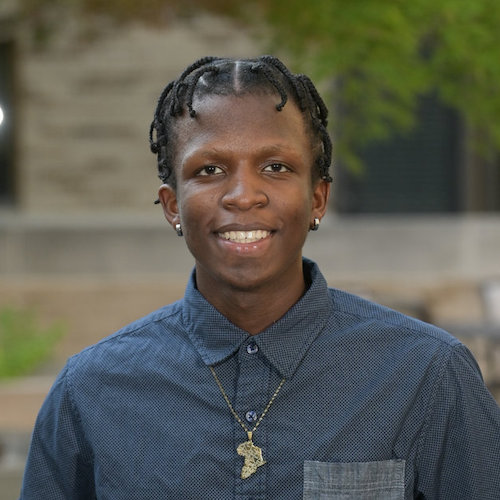
Fabrice Uwihirwe
Fabrice is a junior studying Economics and Global Affairs. He is part of the Kellogg International Scholars Program, and has an interest in doing research targeted at poverty alleviation, specifically in his home country of Rwanda. Recently, he has been looking at the role of NGOs and the expansion of women's participation in politics as they pertain to combating poverty and providing opportunities.
Multimedia Presentations Committee
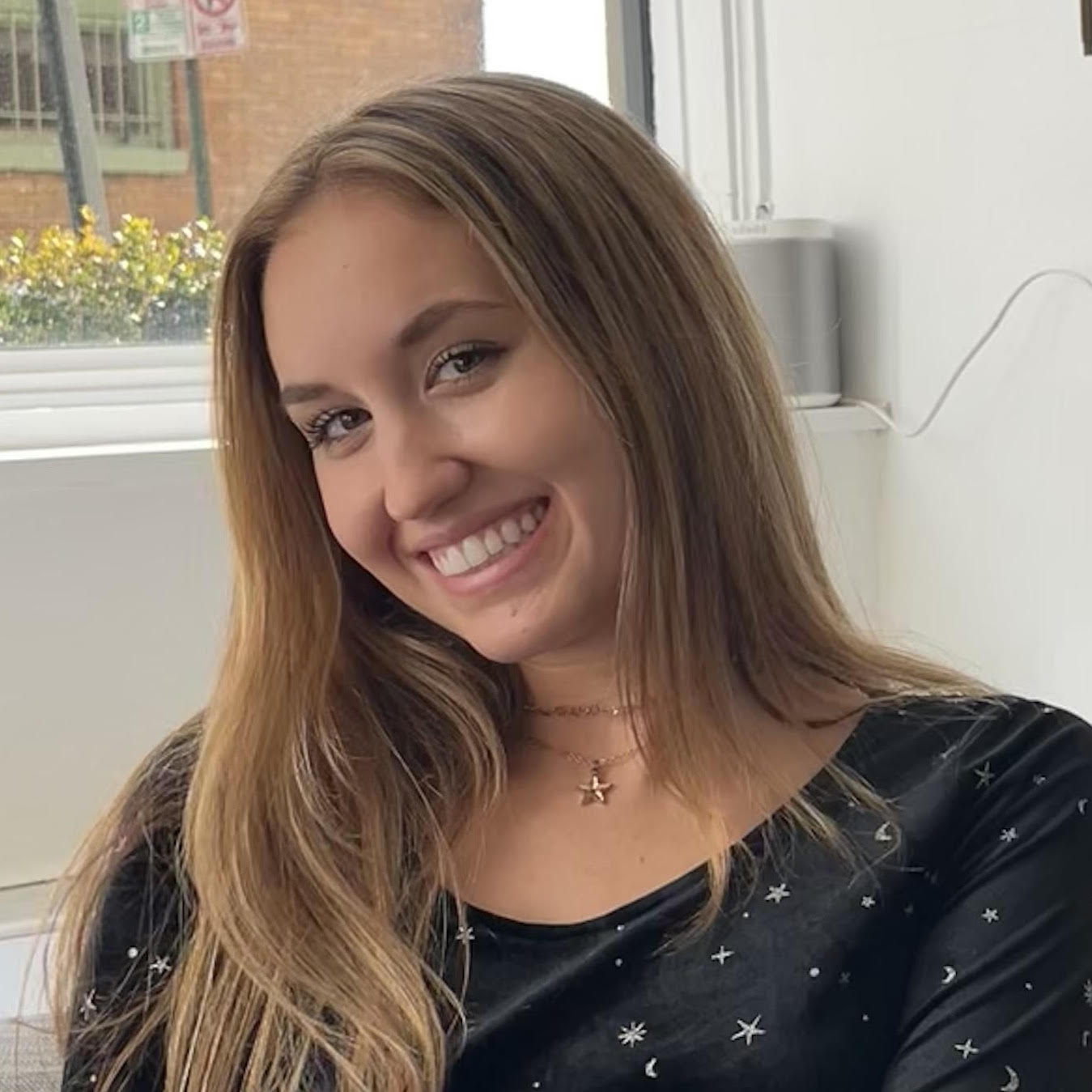
Maya Mehigan
Hi! My name is Maya, and I am a sophomore majoring in Global Affairs and Environmental Science (pre-law track) from Richmond, VA. A couple of my passions include mental health awareness and environmental advocacy. On campus, I am involved in Active Minds Club, the Student Union Board, environmental research, and I also manage a few organization's social media accounts. I'm so excited to help coordinate the HDC journey!
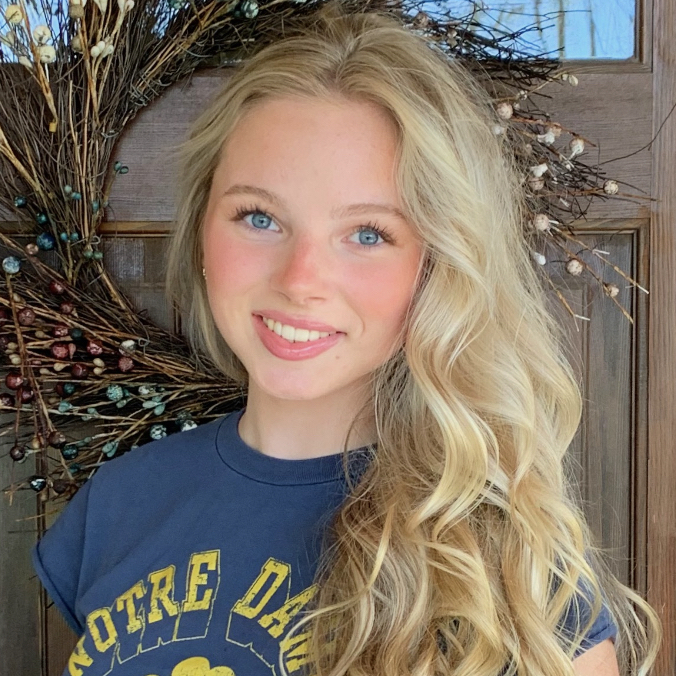
Ashlyn Poppe
Ashlyn is a sophomore from Wyckoff, New Jersey studying Global Affairs and European Studies. She is a Kellogg International Scholar currently performing research under Dr. Edward (Ted) Beatty. On campus, Ashlyn is the Director of Operations for BridgeND, Social Media Director for Notre Dame Television, and an Academic Tutor at the Robinson Community Learning Center. This summer, Ashlyn studied abroad in London, UK and hopes to pursue more travel and research in Europe in the future. Ashlyn attended the HDC during her first year at Notre Dame and is eager to bring her personal interests and experience to the team this year!
Logistics
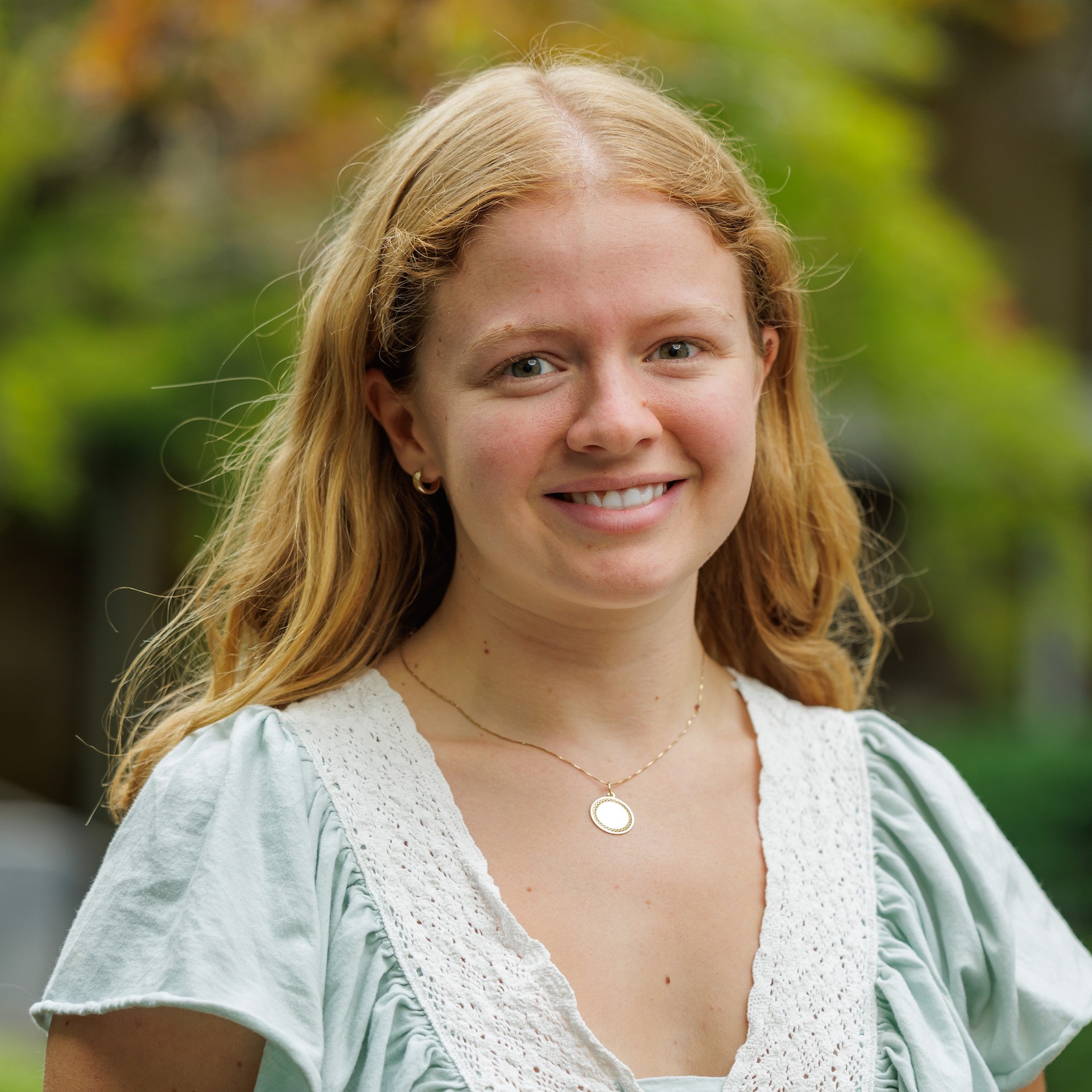
Juliet Webb
Juliet is a senior studying Anthropology, Peace Studies and Education, Schooling & Society at the University of Notre Dame. Originally from Larchmont, New York, Juliet has been passionate about education since she was young. Juliet is currently working on her senior Capstone project, an initiative in which she aims to investigate the many ways elementary education teachers build strong relationships with their students. This past summer, she travelled to Senegal on behalf of an organization she's been involved with since high school; while there, she began her Capstone research amongst a group of high school students in the village of Lambaye. The source of inspiration for her participation in HDC last year and an internship (through Notre Dame's ISSLP) during the summer of 2021, Juliet's greatest hope is to return to Senegal after Notre Dame, particularly in the realm of international education. Juliet is so excited to be a part of the HDC community again, and can't wait to contribute to what is sure to be another incredible conference weekend!
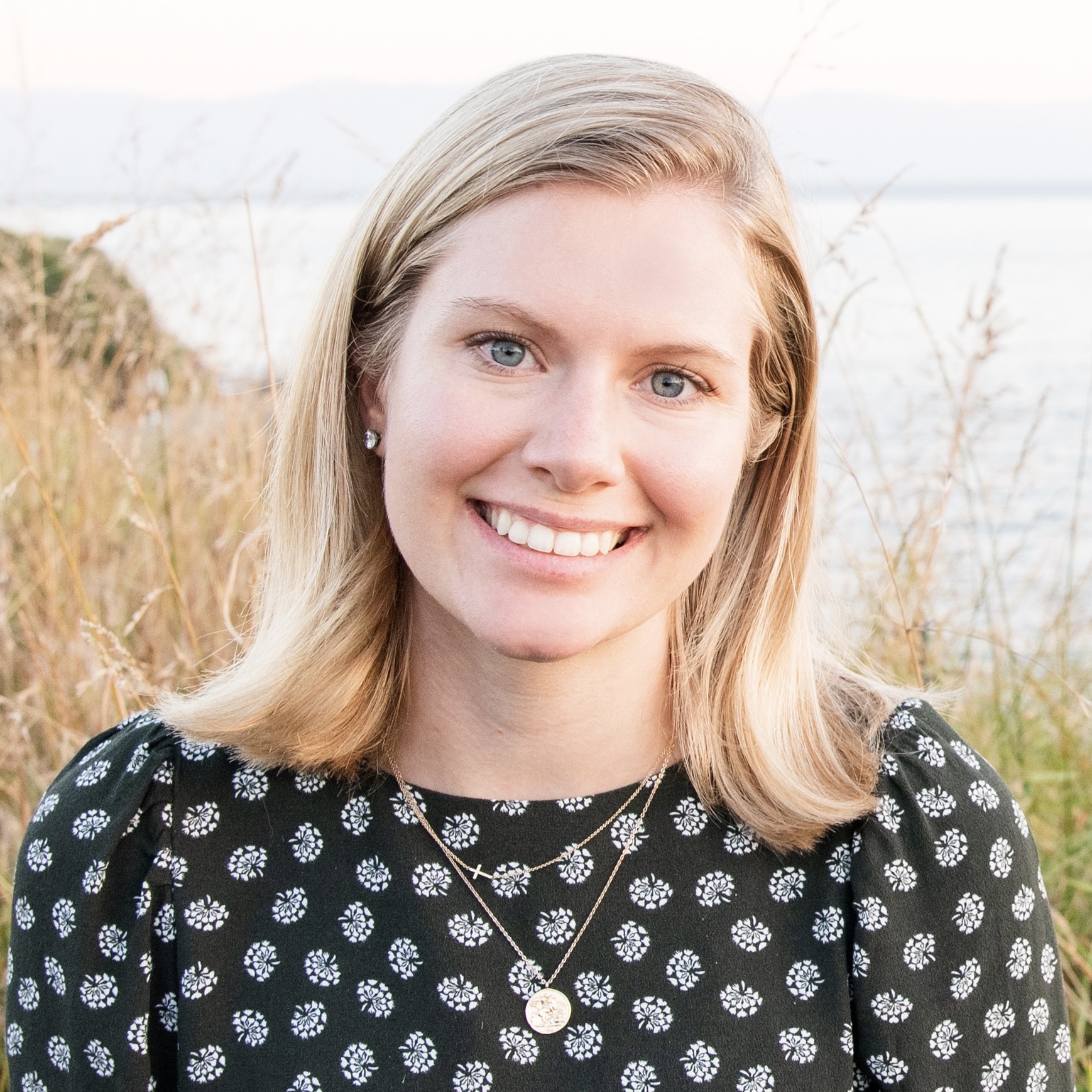
Grace Clinton
My name is Grace Clinton and I am a junior studying Biology and Global Affairs with a focus in Anthropology. I hope to attend medical school and use my education to create sustainable healthcare systems and practices in respect to culture. HDC offers a way for cutting-edge research and experiences to be shared and discussed, thus providing a tangible catalyst for positive change.
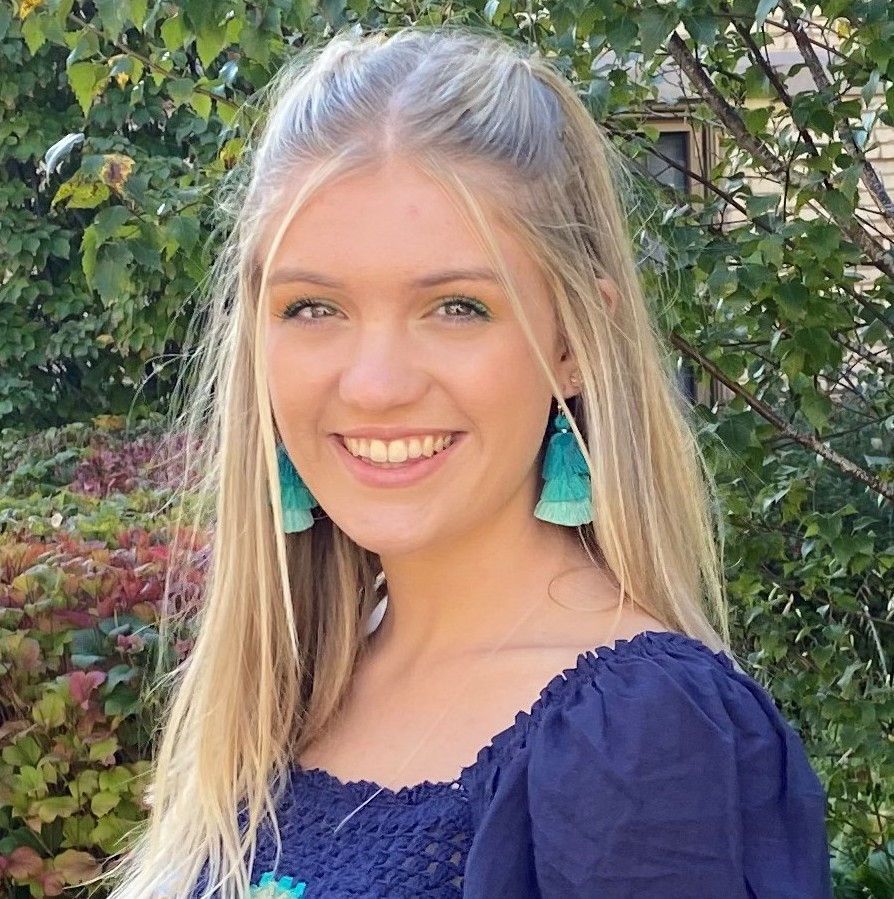
Grace Ducat
Grace is a senior from Kernersville, North Carolina majoring in Science Pre-Professional Studies with minors in Anthropology and International Development Studies. She is interested in education as a part of human and international development, especially the education of stigmatized or marginalized groups such as those with disabilities. This past summer, she received a Kellogg/Kroc Undergraduate Research Grant to study special needs education in Makeni, Sierra Leone for 7 weeks. Her International Development capstone and Anthropology thesis focus on the challenges with inclusive education in mainstream schools in and around Makeni. On campus, Grace serves as the Senior Fellow in Badin Hall and is involved in various organizations on campus including the Kellogg Institute and Anthropology club. In her free time, Grace enjoys spending time with her friends, cooking and baking, and reading. She is excited to continue finding ways to join her academic interests in Anthropology and International Development by getting involved with HDC and help to carry out a great conference this spring!
Abstracts
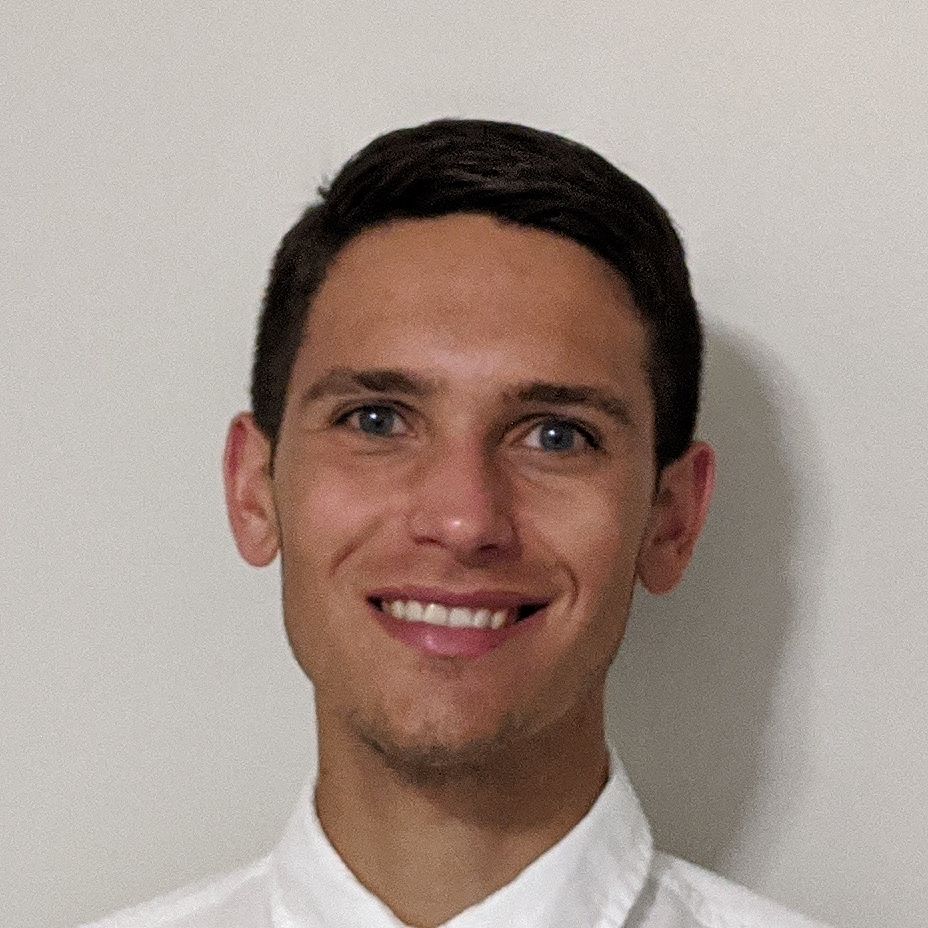
Nick Clarizio
Nick is a Senior. His academic background ranged from Astrophysics to Political Science before he settled on a major in Anthropology. He is passionate about food, languages, people, and the environment. Pursuing these passions has taken him from Southern Italy to Norway and allowed him to become fluent in French and Italian. He hopes that the next step on this journey will be a Master's degree in Food Studies at NYU.
Natalie Selover
Natalie is a senior from Atlanta, GA studying International Economics with a French concentration and minors in Poverty Studies and Education, Schooling, and Society. Her research interests are mostly focused on education and economics, and last year she presented her research on modern Native American migration patterns at HDC. She studied in Angers, France in the fall of 2021 and is currently writing her thesis on the potential impacts of France leaving the European Union. She loves to travel, swim, and be outdoors.
Presenters
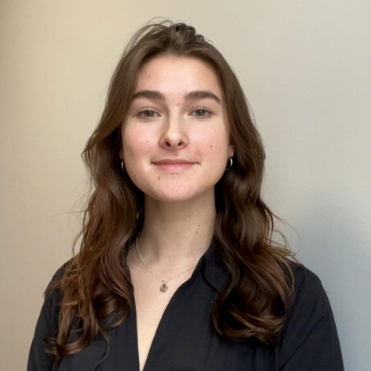
Abigail Mancuso
Abigail is a Junior at the University of Notre Dame studying Psychology with a Supplementary Major in Peace Studies and a Minor in Italian Studies. Through her internship with Learning and Teaching Beyond the Classroom (LTBC), Abigail was able to develop a comprehensive understanding of trauma-informed teaching and the role of education accessibility for vulnerable populations. From this opportunity, Abigail will be working with the Joel Nafuma Refugee Center in Rome, Italy in the Spring of 2023 as part of her Rome International Scholars program. Additionally, Abigail plans to conduct research under the guidance of Professor Erin Corcoran on the role of local non-governmental organizations on refugee mental health and social support. Her research interests, developed through her combination of study areas, comprise of Immigration, Human Rights & Dignity, and Trauma-Based Mental Health.

Alejandro Vargas Osorio
Alejandro Vargas Osorio, estudiante mexicano de Ciencias Políticas de la Universidad Popular Autónoma del Estado de Puebla. De 23 años, originario de Cancún Quintana Roo, ha dedicado los últimos años al estudio de la toma de decisiones que causan un impacto en la sociedad, así como al análisis que tienen colegios particulares de educación básica y ha sido redactor en un portal de noticias locales de Puebla. Durante los últimos meses ha colaborado junto con otros compañeros de clase en el estudio del fenómeno migratorio y en propuestas para mejorar su tránsito por el territorio mexicano. Actualmente está a la espera de realizar su examen para concluir sus estudios universitarios.

Ana Paola Delgado Tallabs
Ana Paola Delgado Tallabs es originaria de la capital de Puebla, México; con 21 años es estudiante de 6° semestre en la Licenciatura de Administración, Gobierno y Políticas Públicas en la Universidad Popular Autónoma del Estado de Puebla. Ha sido acreedora al segundo lugar en el Concurso “Incubando tu comunidad 2020” el cual ha tenido un gran impacto social en el entorno donde se desempeña; tiene un diplomado en Liderazgo Transformador por la UPAEP; así mismo es subcoordinadora general del grupo estudiantil “Hablemos en Serio” el cual busca promover el diálogo abierto y la discusión apasionada entre los jóvenes en búsqueda de la verdad; es miembro activo de Comunidad RED el cual se encuentra integrado por liderazgos representativos que generan actividades integrales para dinamizar la vida universitaria y ha desempeñado una ardua labor académica siendo acreedora a premios como la Cruz Forjada y participando en trabajos de Investigación.
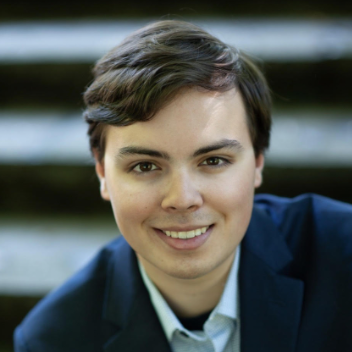
Bennett Hawley
Bennett Hawley is a 4th year in the International Honors Joint Degree Programme between the University of St Andrews and College of William & Mary. He studies international relations and environmental science policy with a geographical focus on Eurasia. Bennett has previously held internships with the Japan Society, US State Department, DH Infrastructure, US Embassy London, and the US Department of the Treasury. Bennett is currently a Research Assistant in World Politics, Applied History, and Strategy at the W&M Global Research Institute.
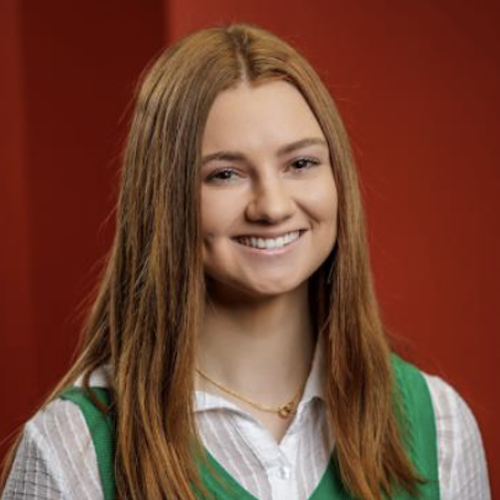
Brookelyn Hanley
I am a senior undergraduate student at the University of Notre Dame studying Neuroscience and Behavior with a minor in International Development Studies. Last summer, I spent 6 weeks in the Kyangwali Refugee Settlement located in Western Uganda investigating the factors that contributed to differences in well-being amongst refugee and non-refugee educators. I was able to compile my findings into a final Capstone report as well as present my research at the American Anthropological Association Annual Conference last November. I am hoping to eventually return back to Kyangwali soon to follow up on my research and share my findings with CIYOTA, the organization I partnered with on this project.
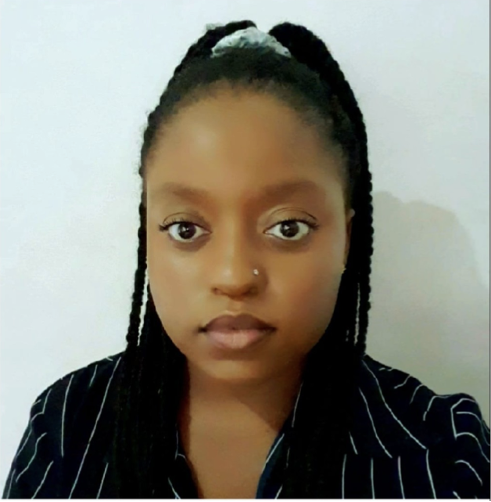
Buhle Sibanyoni
My name is Buhle Thando Sibanyoni, a twenty-one year old Political Science International Relations student at the University of Pretoria with aspirations to further my studies into Law ultimately becoming an International Law lawyer; I am a driven person with great aspirations and never place any limitations on myself and do not allow others to do so; I deeply dislike the word “realistic” as I believe it is a person’s state of mind and is not a universal perception. My interests are also in environmental studies and the evolving relationship humanity has with the environment; as well as studies on meteorology and geomorphology. In 2023 I plan on completing my final year in International Relations becoming the first person in my family to graduate from university and receive a degree.
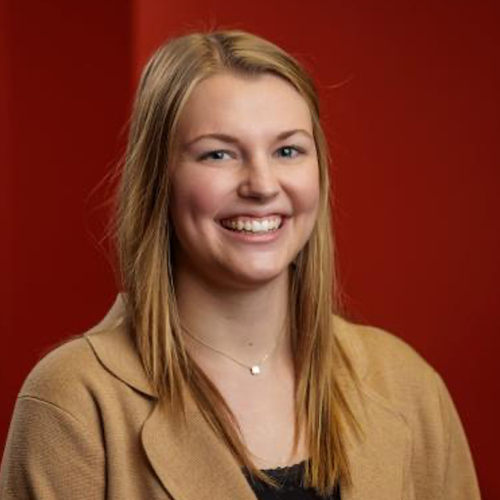
Dana Hergenrother
Dana Hergenrother is a current senior at the University of Notre Dame studying Biology and International Development Studies. She is originally from Champaign, Illinois and hopes to stay in the midwest after graduation. While at Notre Dame, Dana has been heavily involved with her dorm Lyons Hall and works with the Notre Dame Lead Innovation Team, a group that focuses on lead poisoning prevention in the South Bend community. She also is part of the student-run radio station WVFI and is currently training for a half marathon. She has always been interested in the intersection of health and development, and has based her research on this theme. She hopes to use her degree from Notre Dame to pursue a career in public health.

Grace Ducat
Grace is a senior from Kernersville, North Carolina majoring in Science Pre-Professional Studies with minors in Anthropology and International Development Studies. She is interested in education as a part of human and international development, especially the education of stigmatized or marginalized groups such as those with disabilities. This past summer, she received a Kellogg/Kroc Undergraduate Research Grant to study special needs education in Makeni, Sierra Leone for 7 weeks. Her International Development capstone and Anthropology thesis focus on the challenges with inclusive education in mainstream schools in and around Makeni, as well as the cultural beliefs surrounding disabilities in Sierra Leone. Grace is planning to pursue a Ph.D. in Anthropology and continue studying disabilities in West Africa. Outside of academics, Grace serves as the Senior Fellow in Badin Hall and is involved in various organizations on campus, including the Kellogg Institute and Anthropology Club.
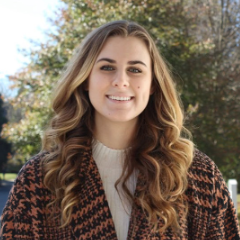
Grace Hegland
Grace Hegland is an engineering major at Swarthmore College. Over the past year, Grace has been a research intern at Swarthmore, studying the water energy nexus. This past summer, she traveled to Iceland with the School for International Training to conduct an independent research project. She applied her knowledge of the water energy nexus from her studies at Swarthmore to conduct a feasibility study of changing the effluent water management practices of a geothermal power plant in Reykjavik, Iceland. She will be presenting this research today.
Hannah Reynolds
Hannah Reynolds is a senior studying Economics and Global Affairs with a concentration in International Development and a minor in Education, Schooling and Society. This past summer she was a recipient of the Kellogg/Kroc Research Grant and conducted independent research in northern Uganda under the advisory of Dr. TJ D’Agostino. Her research addresses stakeholder value of vocational education for girls. On campus, she works for the Pulte Institute for Global Development as a research assistant on the Expanding the Reach of Impact Evaluation and Developing the Whole Child in Haiti projects and as a teaching assistant for the Data for Development course, and is also the co-chair for this years’ Human Development Conference. She is passionate about the intersection of international development and education and hopes to pursue a career in international education policy.
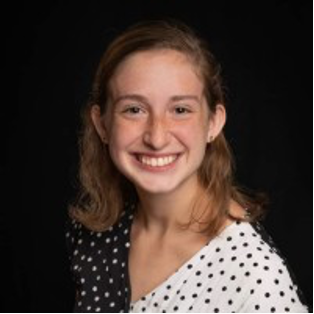
Hannah M Rethmeier
Hannah Rethmeier is a senior at the University of Nebraska Lincoln majoring in Spanish and International Economics. She currently works at the Nebraska Department of Economic Development building international business relationships to grow the state through job and economic opportunity. Hannah plans to continue her education at the Child, Youth, and Families Studies program to start a career in social services for Spanish-speaking migrant families with the goal of one day conducting economic research about immigration services. She spent the spring in Ecuador studying Politics, Languages, and Literatures and completed a research project about a multilingual intercultural education program in Ecuador and its effects on inclusion, interculturality, and self-acceptance.
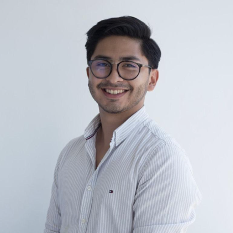
Hiram Alí Utrera Marin
Mi nombre es Hiram Alí Utrera Marin, originario de Salina Cruz Oaxaca, tengo 21 años, estudio administración gobierno y políticas públicas en la Universidad Popular Autónoma del Estado de Puebla. He pertenecido a diversos grupos de jóvenes que buscan el bien común dentro de nuestra sociedad desde un enfoque religioso, aunado a ello tengo un diplomado en oratoria por el instituto mexicano de oratoria y formación de líderes, de igual forma me he desempeñado en trabajos afines a mi licenciatura que me han permitido conocer un poco más el contexto en el que se desarrollan diversos sectores de mi comunidad.
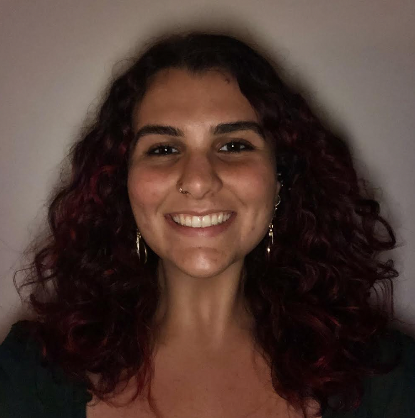
Isabel Brum
Isabel Cristina Brum Cancio was born and raised in Puerto Rico. She is an undergraduate student at Carnegie Mellon University where she studies Cognitive Neurosciences with an additional major in Ethics, History, and Public Policy. During the summer of 2022, she completed a study abroad internship in Kisumu, Kenya as part of the Public Health in the Tropics program of the School of International Training (SIT). Isabel was recently awarded the Thomas R. Pickering Foreign Affairs Graduate Fellowship and will be pursuing graduate studies in International Development next year. She is interested in promoting the sustainable development of every region in the world to ensure that people can live with dignity across the globe. In her free time, she enjoys being outdoors (camping, kayaking, hiking, etc.) and going to concerts with her friends.
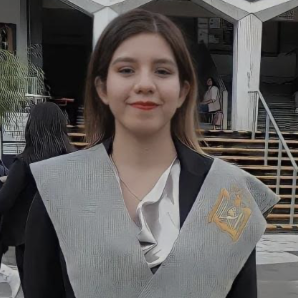
Ivana Morelia Justo Juárez
Mi nombre es Ivana Morelia Justo Juárez, nací en Oriental puebla el 3 de agosto del año 2000, cursé mi educación básica en Oriental, al igual que el bachillerato del cual egrese como técnica en logística, mi educación superior la estoy cursando en la UPAEP en la ciudad de Puebla, Puebla en la carrera de Ciencias Políticas. A lo largo de mi formación académica fui galardonada con premios de excelencia académica tales como Cruz forjada, deportivos, culturales y liderazgo. Actualmente soy consejera universitaria de la facultad de Ciencias Políticas y Gobierno, formó parte del consejo de integridad académica universitario, he colaborado en actividades académicas de investigación migratoria, participó activamente en la Asociación “Tercera Llamada” actuando en diferentes estados de México y realizando obras sociales en Oriental Puebla, he colaborado con asociaciones como CANAJOP y Red de Jóvenes Políticos.
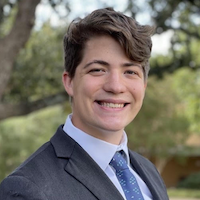
James Sanford
I am a senior at the University of Dallas graduating with a B.S. in Economics this May. I’m most interested in researching the effects of environmental degradation and its ties to economic activity. I feel the environmental issues we face are economic issues as well, and finding solutions are key to advancing human development. Outside of research, I am a 2023 Venture for America Fellow and will most likely work in the Philadelphia or Baltimore area, hopefully with a startup addressing regional environmental issues. At the end of my fellowship I will discern whether to remain in the startup space, or return to school to obtain a PhD in environmental economics. Wherever my path may lead, I’m excited about the future and am committed to finding ways to contribute to sustainable human development.
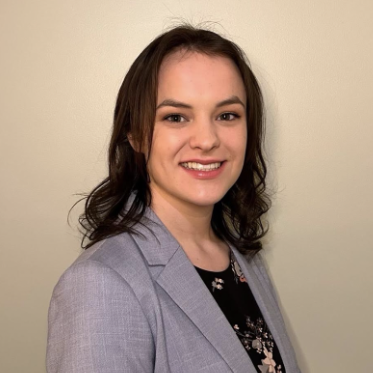
Julia Hawthorne
Julia Hawthorne is a senior at the University of Notre Dame from Saratoga NY, double majoring in Biological Sciences and Philosophy with a Glynn Family Honors Program minor. At home, she worked as a medical assistant in pediatrics. At Notre Dame, she is the president of Adopt-a-Family Christmas Initiative, a club that raises money for Thanksgiving meals and Christmas presents for local families. She also worked as an Advising Fellow for Matriculate to provide free college advising to high-achieving, low-income high school students. Her work as a medical assistant and efforts to improve education access has inspired a passion for equity in education and healthcare. This has motivated her thesis research on women’s health and menstrual health management in Ugandan schools. As a project leader in Notre Dame’s collaboration with St. Bakhita’s Vocational Training Center, Julia is working to promote the all-female school’s financial independence and empower its entrepreneurial-minded students.

Julio César Blanco Bautista
Mi nombre es Julio César Blanco Bautista tengo 23 años, tengo doble nacionalidad y actualmente vivo en México, estudio Administración, gobierno y políticas públicas en la UPAEP, practico MMA, me gustan los temas relacionados a la política e investigación, milito en un partido político y en general me gusta el humanismo y más aplicado en el ámbito político. Me destaco por ser una persona con entusiasmo y liderazgo, me gusta trabajar en temas sociales en pro de mejorar nuestro entorno; una de mis metas actualmente es crear una asociación civil, de hecho ya tengo el nombre y he estado trabajando en varios aspectos para poder realizarlo. He colaborado en varias mesas de trabajo con diferentes equipos tratando temas sociales actuales en busca de una posible solución. Me encantan los animales y pasar tiempo con familia y amigos.
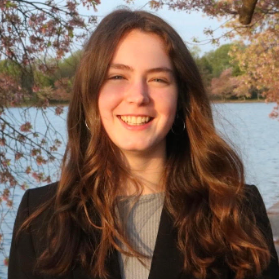
Kate Reeves
Bartell Prize winner
Kate Reeves is a member of the class of 2023 at Georgetown University’s Walsh School of Foreign Service. As a Culture and Politics major, she concentrates on themes of displacement and water rights/access. Kate has worked with various DC organizations to mobilize action on migrant injustice and environmental injustice. Her academic research examines the intersection of these issues as they relate to indigenous rights and relationality with land. Outside of the classroom, Kate enjoys organizing Model United Nations conferences, playing on Georgetown’s Club Field Hockey Team, and writing poetry.
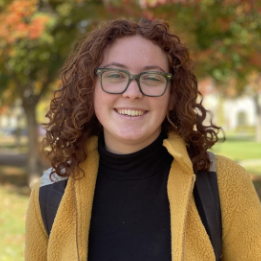
Katherine Jennings
I am Katherine Jennings, a senior at Notre Dame. At Notre Dame, I study Biochemistry and Global Affairs with a concentration in International Development Studies (IDS). I am originally from Southern California. For the Human Development Conference, I will be presenting the research I conducted for my IDS Capstone. The research was conducted in Santiago, Chile, the summer 2022. It focused on understanding the adaptations of migrant doctors from Venezuela to the Chilean Healthcare system. It explored aspects of the two different healthcare systems and focused on the impacts of these systems on patient care.
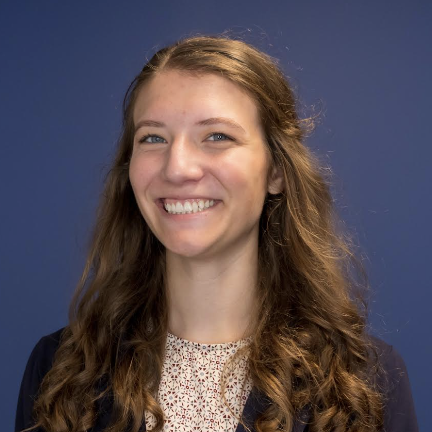
Lauren Ostdiek
Lauren Ostdiek is a junior at the University of Notre Dame studying Economics and Education, Schooling, & Society with minors in Data Science and the Glynn Family Honors Program. Originally from Columbus, Nebraska, she spends her time on campus working at the Writing Center and as an Economics T.A., doing research in Notre Dame’s S.T.E.M. Center for Education, and playing inter-hall sports for McGlinn. She is particularly interested in the power of education and the role schooling plays in social mobility, and is passionate about exploring solutions to educational inequality. Her interests led her to Santiago de Chile, where she researched the experiences of students’ socioeconomic integration into a private school.
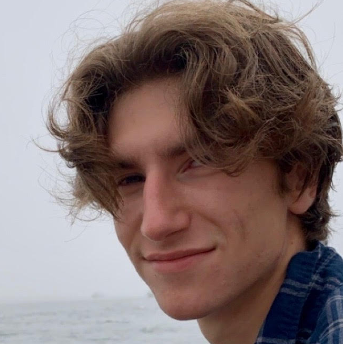
Leif Maynard
Leif Maynard is a senior Environmental Studies and Government and Legal Studies major and Hispanic Studies minor at Bowdoin College. His research interests include the political ecology of energy transitions and environmental activism in Latin America. Leif has completed research on the politics of renewable energy at both ends of the supply chain, from extraction in Ecuador to siting in Maine. He has recently worked as a trail guide in the White Mountain National Forest and an environmental policy fellow at a sustainable development organization in Maine. Currently, Leif is a teaching assistant in Dr. Shana Starobin’s class Environmental Policy and Politics and is involved in climate justice organizing.
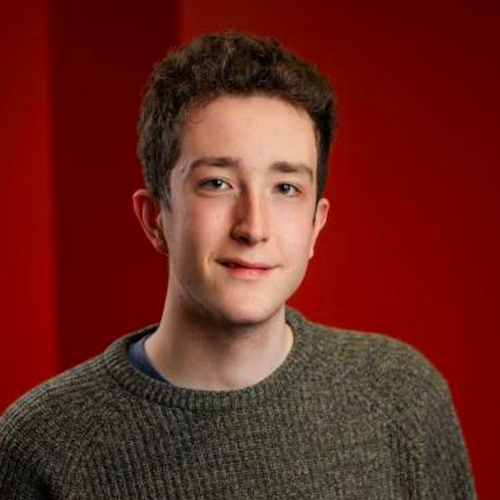
Liam Coolican
Liam Coolican is a senior studying International Economics and French at the University of Notre Dame, with minors in International Development Studies and Journalism, Ethics, and Democracy. He has received grants to study small business development and entrepreneurship in Johannesburg, South Africa, and Abidjan, Côte d’Ivoire. Liam spent a semester at l’Université Catholique de l’Ouest in Angers, France and has interned at the Catholic magazine The Tablet in London. On campus, Liam serves as Sports Editor for the student-run magazine, Scholastic, and as a Resident Assistant in his dorm, Carroll Hall.
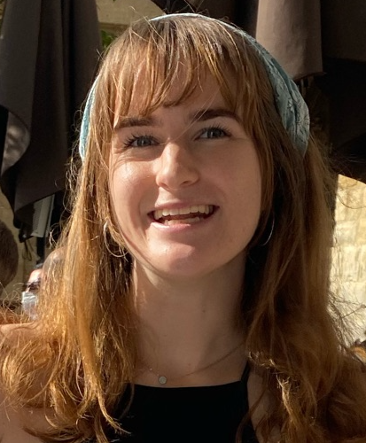
Lily Storrs
My name is Lily Storrs and I am a junior studying Political Science and Social Entrepreneurship. I am passionate about learning more about the intersection of social entrepreneurship, education, grassroots initiatives, and gender equality promotion in development. Last spring semester, I worked as a student consultant for a school in South Sudan focused on peacebuilding, which has further fostered my interest in education in global peacebuilding efforts. I also was a research assistant for the Pulte Institute for Global Development, working on projects for USAID mapping international development projects and tracking access to free media. This past fall semester, I studied abroad in Rwanda, where I studied Post-Genocide Reconciliation and Peacebuilding, focusing primarily on grassroots peacebuilding initiatives. My research focuses on a case study of a women’s weaving cooperative in rural Rwanda to examine how international aid and social enterprises impact gender equality promotion.
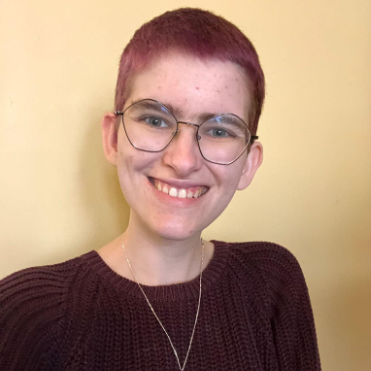
Linnea Kedziora
Linnea Kedziora (23) graduated from the College of Wooster in December 2022 with a double major in Global & International Studies and French & Francophone studies as well as a minor in Middle Eastern & North African Studies. They are currently living in Dayton, Ohio with their parents and their puppy, Odin, but they plan to relocate to the Twin Cities and start a career furthering human rights causes. In their freetime they enjoy knitting and sewing and are working on improving their Arabic.
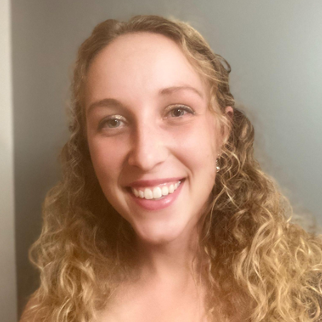
Lucille Ketterer
Lucille Ketterer is a senior in Environmental Engineering at Bucknell University. While studies at Bucknell gave her a foundation in research, she explored her own research topic while studying abroad in Iceland in the Spring of 2022. She learned all about climate change from one of the world’s greenest countries, with a focus on carbon sequestration. While there, Lucille met with leading climate experts who used carbon sequestration to combat climate change. She ultimately wrote a unique code, website, and academic paper to help companies and individuals implement their own forms of sequestration back in the United States.
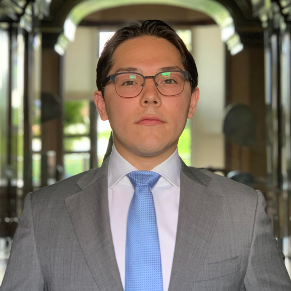
Luis Elizondo Gracia
Luis Elizondo Gracia is a senior from Monterrey México studying economics and Italian at the University of Notre Dame. He has engaged in research work since his sophomore year as part of the Kellogg Institute's International Scholars Program. After working with outstanding professors such as Dr. Scott Mainwaring and Dr. Alejandro Estefan, he decided to step away as an assistant and instead begin his own research endeavor by writing a senior thesis under the honors concentration in Economics. For Luis, research should always have the common good at its core, as well as practicality. One of the reasons he decided to study in the United States was the amazing skill set he could build, hoping he would one day put it to use for the benefit of his home country, México. As a result, his thesis focuses on trying to help policymakers solve one of the most pertinent issues afflicting the country, water sustainability.
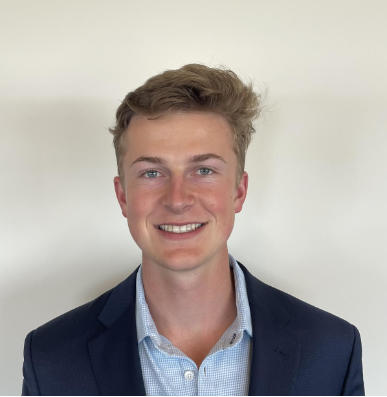
Luke Schafer
Luke Schafer is a senior at the University of Notre Dame. He is originally from Williamston, Michigan and majors in Economics and Global Affairs, while minoring in Constitutional Studies. He will attend law school after graduation and, long-term, hopes to pursue a career at the State Department working in rule of law-based development. Luke is an avid reader and loves hiking, traveling, and playing sports. He remembers attending the HDC as a college freshman, and thus is very excited to bring his collegiate experience full circle by presenting at the HDC.
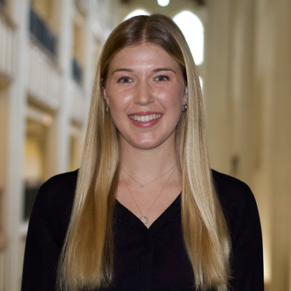
Madeline Johns
Madeline Johns is a senior at the University of Notre Dame majoring in Biological Sciences with a minor in International Development Studies. Through this minor, Madeline was given the opportunity to travel to Kumasi, Ghana where she conducted malaria psychosocial research. Specifically, she investigated the knowledge, attitudes, and practices that adult Ghanaians have relating to malaria. This research has gleaned crucial insight into the modern malaria perceptions and health-seeking behaviors of rural Ghanaians. Inspired by this experience, Madeline has decided to pursue a Master’s in Public Health after graduating from Notre Dame. With this education, she hopes to become a leader in the global effort to reduce infectious disease burden.
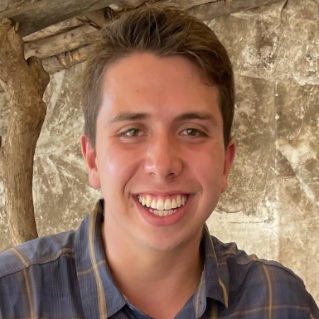
Marcos Turk
Marcos is a junior at The George Washington University (GW), from McAllen, Texas, studying International Affairs with a concentration in International Development and Security Policy. During the Spring 2022 semester, Marcos took part in School for International Training’s Uganda: Global Development Studies program, where he conducted research on the displacement of a Pygmy tribe in western Uganda. When on campus, Marcos is involved in GW’s TRAiLS club, and enjoys hiking, biking, and being outdoors. Marcos recently studied abroad in Barcelona, Spain, for the Fall 2022 semester, and will begin a student exchange and internship program in Santiago, Chile this spring.

María Fernanda Osario
María Fernanda Osorio Ramos is 21 years old, currently studying International Relations at the Universidad Popular Autónoma del Estado de Puebla, she was certified by the Cámara Nacional de Jóvenes Políticos Mexicanos and the Alianza Política Juvenil of the state of Puebla due to her participation in the conferences "Hablemos por Puebla". She is a member of the student group "Alas sin fronteras" focused on raising awareness on migration and refugee issues, and is also part of the humanitarian organization "Diálogo Intercultural Mexicano" (DIME) that seeks to promote and build educational opportunities for refugees from all over the world. During her university career, she has received training from the Office of the United Nations High Commissioner for Refugees, as well as accompaniment courses given by the organization Servicio Jesuitas a Migrantes México for people working in humanitarian aid.

Mary Kate Temple
Mary Kate Temple is a senior studying Film, Television, and Theatre and Global Affairs with a concentration in International Development Studies and a minor in Musical Theatre. Throughout her time at the University of Notre Dame, Temple has become interested in gender equality and education and has explored these topics through research and service. Temple conducted field research using the undergraduate Kellogg / Kroc grant in Tamale, Ghana, focusing on girls’ education and teenage pregnancy under the supervision of Dr. Joyce Adams. On campus, Temple has participated in student government, theatre, and an art and culture magazine.

Michelle Alejandra Vélez Muñiz
Mi nombre es Michelle Alejandra Vélez Muñiz, nací el 7 de noviembre de 1999, nací en el municipio de Tehuacán, Puebla y soy mexicana, tengo 23 años y actualmente estoy cursando el séptimo semestre de la licenciatura de Administración, gobierno y políticas públicas en la Universidad Popular Autónoma del Estado de Puebla (UPAEP). Desde antes de que tomara la decisión de estudiar esa licenciatura, mi gusto por la política y los temas sociales en los que se encuentra mi país y el mundo. Por lo que me he desarrollado para expandir mi conocimiento hacia esa rama de lo político y social. Me gusta mucho ayudar, uno de mis intereses es poder hacer acciones altruistas a favor de la sociedad, de las personas de escasos recursos y sobre todo que esas acciones sean con causa.
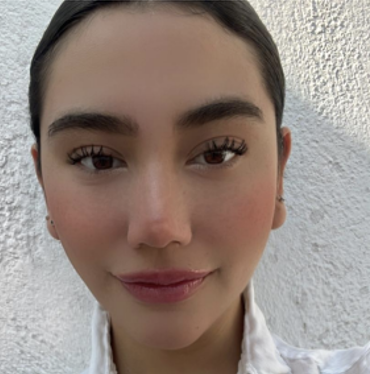
Mildred Cedillo
Mildred Natalia Cedillo Alfonzo is 21 year old, and she is studying her sixth semester in International Relations at the Universidad Popular Autónoma del Estado de Puebla, she has accredited a course on economic inequality and corruption in Mexico by the Colegio de Mexico, she also has taken courses of human rights by the national comission of human rights, she has participated in training courses by the United Nations High Commissioner for Refugees (UNHCR) as well as capacitations by the organization ‘Jesuit service to migrants’, she is currently in a student group called ‘wings without borders’ where migration and refugee issues are approached, on the other hand she is participating as the sub-coordinator of the student committee “Diálogo Intercultural Mexicano'' at UPAEP. She also has English certifications from Cambridge University, in addition she has participated in models of the United Nations and in many conferences at the university about international relations.
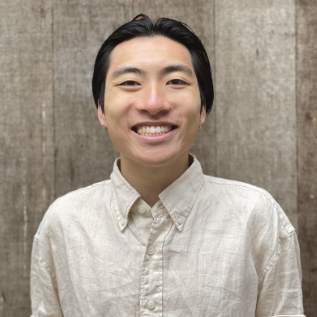
Nathan Tam
Nathan Tam ‘23 (he/him) is an Urban and Environmental Policy major from San Francisco interested in untold stories, learning family histories, and building community solidarity and support at individual and collective levels. Conducted while studying abroad in Nepal in the Fall of 2021, the research he is presenting focuses on the South Asian caste system and its implications on those marginalized by it. At Occidental College, his research focuses on the history and place-making of Chinese America and the factors that determine the social bonding of “community”. His current thesis builds upon this in discovering sites of community in urban Chinatowns throughout Chinese American history and illuminating younger Asian Americans’ relationship to traditional and unconventional sites of community building in the development of their racial identity
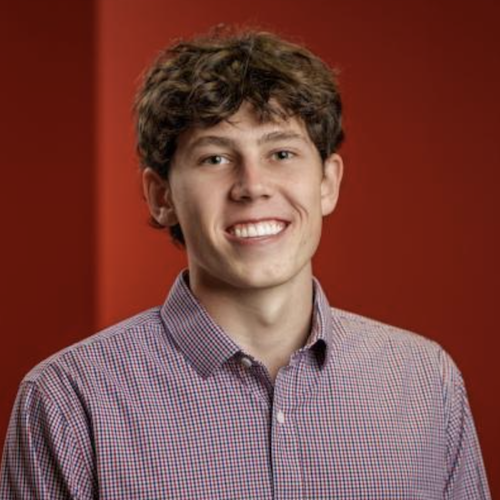
Nate Cieplik
Nate Cieplik is a senior at Notre Dame studying Biology and Global Affairs, with a concentration in International Development Studies (IDS). Cieplik completed his IDS research project in Gera, Tanzania during the summer of 2022, under the advisory of Professor Yixing Chen. He will present on this project, which focuses on assessing knowledge of community members about Human papillomavirus (HPV) and their opinions about the HPV vaccine. Cieplik also conducts research with Dr. Olson's lab at Notre Dame studying reactive sulfur species, the evolutionary origin of antioxidant molecules, and cardiovascular physiology. Cieplik plans to apply to medical school during the summer of 2023, and he is always happy to talk about global health!
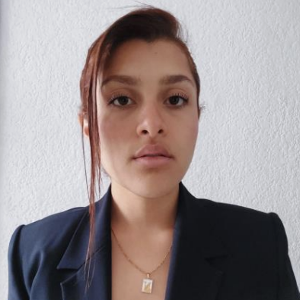
Nisa Mariel Valencia
Nisa Mariel Valencia Torre is a 20 year old, she is a student of International Relations at the Universidad Popular Autónoma del Estado de Puebla and a member of the student group "Alas sin fronteras" which focuses on raising awareness about migration and refugee issues. She is also part of the humanitarian organization "Diálogo Intercultural Mexicano" (DIME), which works to promote and build educational opportunities for refugees deployed around the world. During her university career she has taken courses and training from various organizations such as the United Nations High Commissioner for Refugees, Puebla, the Jesuit Migrant Service and the U.S. Committee for Refugees and Immigrants with the objective of complementing her academic training to strengthen her competencies in order to become a highly competitive professional.
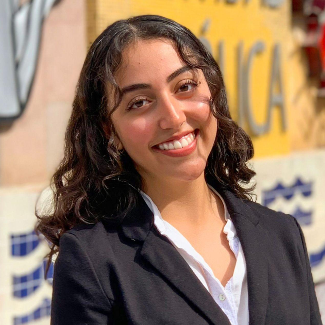
Paola Alvarez Capetillo
Paola Alvarez Capetillo is student of International Relations at the Universidad Popular Autonoma del Estado de Puebla, where she has been awarded with the hightest recognition for the academic excellence “Cruz Forjada”. Paola is also co-author of the book “Et Mulier” a project that seeks to contribute to the self- knowledge of girls; in addition, she was president of the commission of Citizen Participation, Puebla chapter, in the Camara Nacional de Jovenes Políticos Mexicanos which is a civil youth political organization; Paola is currently the coordinator of the student committee “Dialogo Intercultural Mexicano” at UPAEP whose objective is to help refugee students to continue their studies at Mexico, and she is member of the student group “Alas sin Fronteras”, which is focused on migration issues. Paola is certified in Basic Aspects of Human Rights for migrants by the Human Rights Commission of Puebla, also she has the recognition "CONCAUSA" a r program promoted by ECLAC and UNICEF for contributing to the Sustainable Development Goals.
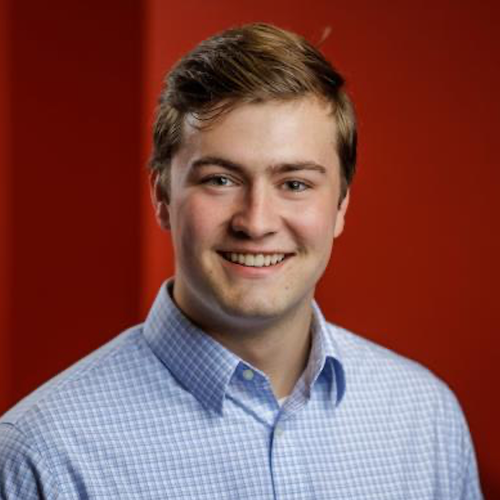
Patrick Enochs
My name is Patrick Enochs and I am a senior at the University of Notre Dame. I am majoring in economics and global affairs with a concentration in international development studies. It is through this concentration, along with the help of the Kellogg grant, that I was able to travel to India to explore the relationship between secularism and education. I am excited to be able to share my findings through the Human Development Conference!
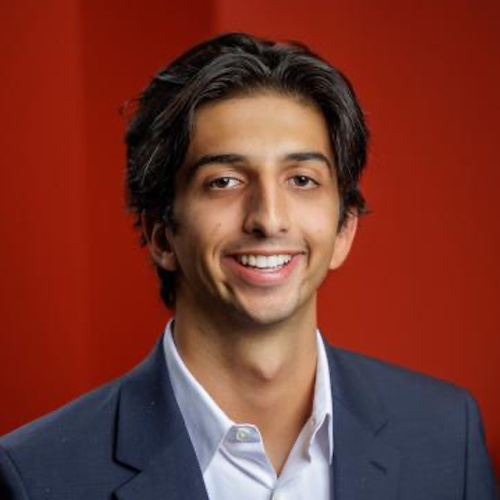
Quinton Hayre
Bartell Prize winner
Quinton Hayre is a senior Science Preprofessional and Global Affairs major at the University of Notre Dame. He intends to pursue a career in social epidemiology and is especially interested in addressing water and sanitation and infectious disease issues. After two previous experiences in the region, Quinton successfully conducted an independent research project in a rural and remote village in Fiji studying the relationship between community water governance and natural disaster resiliency during the summer of 2022. Beyond presenting his results at the Human Development Conference, he hopes to work with his advisor, Dr. Ellis Adams, to publish parts of the study in an undergraduate academic journal. Additionally, Quinton hopes that he can continue to use his project to assist the village in promoting water security, in addition to creating structural change within the water-related governmental organizations in Fiji.
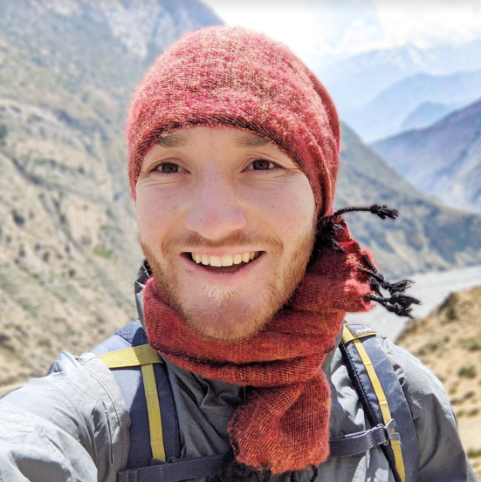
Ronan Wallace
Ronan Wallace is an engineering fanatic with the heart of an anthropologist. With six years of formal studies in computer, data, and cognitive science, Ronan strives to challenge his beliefs by immersing in new cultures and experiences, all while considering his role as an engineer. He finds the most fulfilling and transformative experiences in travel and cultural exchange. While conducting his nationally nominated research in Nepal, he witnessed the potential of weaving empathy into engineering. Pursuing this revelation, Ronan lives at the intersection of computer science, neuroscience, environmentalism, and ethnography, all with the goal of helping others.
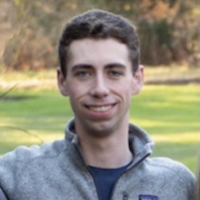
Ryan Murdock
Ryan Murdock is a junior studying Applied and Computational Mathematics and Statistics (ACMS) and Global Affairs with a concentration in International Development Studies. He grew up just North of Chicago but comes from a large family of Notre Dame Alumni, so South Bend was always a second home growing up. He is particularly interested in using his experience in ACMS to analyze developmental progress in a research project that he will conduct through the Kellogg Institute next summer. This past summer, Ryan interned at the McKenna Center for Human Development and Global Business’ South Bend Entrepreneurship and Adversity Program where he was a consultant for local entrepreneurs seeking to grow sustainable businesses from adverse economic circumstances. He is very excited to use the experience he gained in marketing to work with the Human Development Conference for the first time this year!
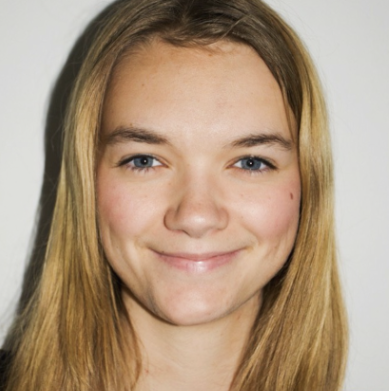
Savannah Vetterly
Savannah is a senior at Notre Dame studying ACMS with a minor in Poverty Studies. She is a member of the Family Studies Lab on campus where she primarily studies emotional security theory and parent-child attachment. Her experience with the Family Studies Lab has shown her how much she loves applying her quantitative skills from ACMS to research. Savannah’s interest in studying healthcare outcomes for individuals experiencing homelessness and in poverty began when volunteering as an EMT at a homeless shelter clinic. From this experience, she decided to minor in poverty studies to better understand the socioeconomic determinants of health, which will inevitably affect her future patients. Savannah is excited to continue this line of research in medical school next year.
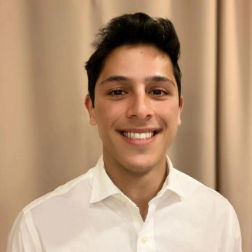
Sham Khuseynov
I'm a senior studying Economics and International Studies with a concentration in Post-Soviet Eurasia at Denison University. I was born in Dushanbe, Tajikistan and partially grew up there, which is where my passion for studying migration and Eurasia stems from. At the age of 10, my family and I moved to Washington State and then to Ohio. At Denison, I work several jobs and take part in various organizations. I am the event chair for the Denison International Student Association, I am a Residential Advisor, I work at the Bookstore, and I coordinate projects for the study abroad office. Outside of work and involvement, I love playing soccer with friends and learning about different languages and cultures. As of now I am fluent in English, Russian, and Tajik (Farsi), and attempting to learn Spanish.
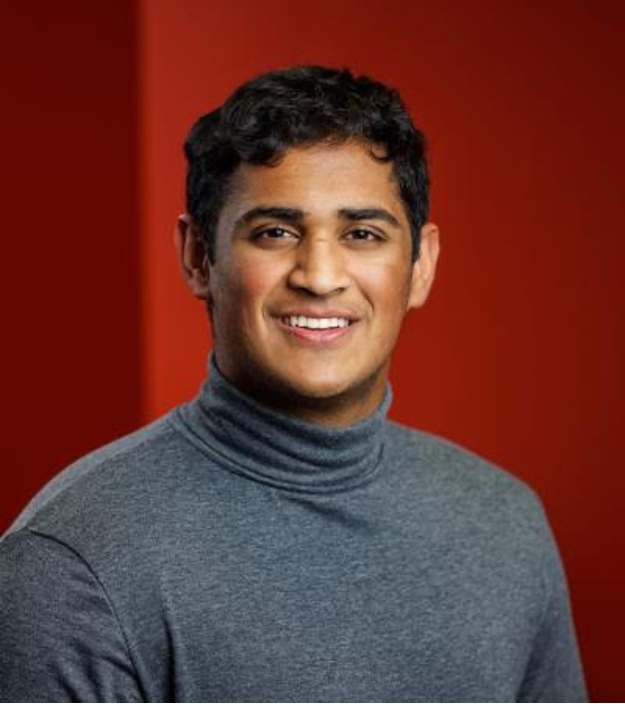
Shreyas Chetan
Shreyas Chetan was born in Brooklyn, New York and spent the early part of his life traveling and living in different states and countries. He currently resides in Jacksonville, Florida with his parents, sister, and dog. Shreyas spent the majority of his summers as a kid in India, however, in all his time staying in India, he had never left the southern state of Karnataka where his family is from. Because of this fact, Shreyas' research project was especially exciting as he got to experience a different part of the subcontinent, delving into the culture and learning more about the people there. Having a minor in IDS has allowed Shreyas to explore many of his passions such as traveling, meeting new people, and conducting research which he would have not been able to do without all of his mentors' support on this project.
Artist Bios
Ronit Shah
Ronit Shah is a 20-year-old student from St. Xavier’s College, Mumbai in India. He is deeply interested in the intersection of development, identity, and sustainability. He is also a photography and writing enthusiast!
Hannah Reynolds
Hannah Reynolds is a senior studying Economics and Global Affairs with a concentration in International Development and a minor in Education, Schooling, and Society. This past summer, she was a recipient of the Kellogg/Kroc Research Grant and conducted independent research in northern Uganda under the advisory of Dr. TJ D’Agostino. Her research addresses the stakeholder value of vocational education for girls. On campus, she works for the Pulte Institute for Global Development as a research assistant on the Expanding the Reach of Impact Evaluation and Developing the Whole Child in Haiti projects and as a teaching assistant for the Data for Development course and is also the Co-Chair for this year’s Human Development Conference. She is passionate about the intersection of international development and education and hopes to pursue a career in international education policy.
Grace Ducat
Grace Ducat is a senior from Kernersville, North Carolina, majoring in Science Pre-Professional Studies with minors in Anthropology and International Development Studies. She is interested in education as a part of human and international development, especially the education of stigmatized or marginalized groups such as those with disabilities. This past summer, she received a Kellogg/Kroc Undergraduate Research Grant to study special needs education in Makeni, Sierra Leone, for 7 weeks. Her International Development capstone and Anthropology thesis focus on the challenges with inclusive education in mainstream schools in and around Makeni, as well as the cultural beliefs surrounding disabilities in Sierra Leone. Grace is planning to pursue a Ph.D. in Anthropology and continue studying disabilities in West Africa. Outside of academics, Grace serves as the Senior Fellow in Badin Hall and is involved in various organizations on campus, including the Kellogg Institute and Anthropology Club.

Madeline Johns
Madeline Johns is a senior at the University of Notre Dame majoring in Biological Sciences with a minor in International Development Studies. Through this minor, Madeline was given the opportunity to travel to Kumasi, Ghana, where she conducted malaria psychosocial research. Specifically, she investigated the knowledge, attitudes, and practices that adult Ghanaians have relating to malaria. This research has gleaned crucial insight into the modern malaria perceptions and health-seeking behaviors of rural Ghanaians. Inspired by this experience, Madeline has decided to pursue a Master’s in Public Health after graduating from Notre Dame. With this education, she hopes to become a leader in the global effort to reduce the infectious disease burden.

Presentation Guidelines
Presenters are expected to attend the entirety of the conference, from Friday afternoon to Saturday evening. Due to the number of presenters involved in the conference, we are unable to meet requests for specific presentation times. Please plan your travel accordingly.
Panel Presenters will be placed with 1-3 other students whose research is related. A panel will last for 1 hour and 30 minutes and consist of student presentations, feedback from a faculty moderator, and discussion & questions with the audience. Please be aware that going over time may infringe upon the time allotments of other presenters.
Length: 15 minutes
Format: Presenters typically utilize a PowerPoint, Google Slides, etc. to present their project. We encourage creativity with graphs, charts, videos, etc.
A desktop, projector, screen, and podium will be available in each of the session rooms. You will not be able to use your own laptop for your presentation.
What to include in your presentation:
- Brief introduction of research and relevance
- Methodology
- Discussion of results and conclusion (this should be the bulk of the presentation)
- Relate your research to the conference theme.
Please email your final presentation to hdc@nd.edu by Monday, February 20, to provide panel moderators with adequate time to review and prepare their remarks and feedback. Following the conference, your presentation may be placed on our website to serve as a guideline for next year’s presenters.
Bartell Prize
The Rev. Ernest J. Bartell, CSC, Prize for Undergraduate Research on Poverty and Development is conferred annually at the University of Notre Dame's Human Development Conference. Two $1,000 prizes recognize outstanding undergraduate student research on poverty and development. Each year one prize will be given to a student at the University of Notre Dame and one to a student from another university.
Undergraduate students invited to present at the 2023 Human Development Conference are eligible to apply for this award. Information regarding how to apply is included in the conference invitation. Students who wish to be considered must apply by Monday, January 16, 2023. Additional information and/or an interview may be required. Finalists will be notified in the beginning of February.
Student research should address a specific aspect of poverty and development, whether in the United States or abroad. Research may be submitted from any field of study, including the social sciences, natural sciences, and humanities. Students are encouraged to conduct original research and to consider programs and policies that could help reduce poverty. A faculty committee will determine the award recipients, and prizes will be conferred during the Human Development Conference, February 24-25, 2023.
Call for Papers
The Ford Program in Human Development Studies and Solidarity and the Kellogg Institute for International Studies, part of the Keough School of Global Affairs at the University of Notre Dame, announce the 15th annual Human Development Conference.
For fifteen years, the Human Development Conference has provided a forum for undergraduate students from a wide range of backgrounds and disciplines who are passionate about development to engage in dialogue about development research.
The 2023 Human Development Conference, themed Solidarity in Development: Empowering Agents of Change, will encourage participants to consider how pragmatic solidarity and accompaniment can provide an opportunity for collaboration and ultimately bring about inclusive and sustainable development outcomes. This year’s conference seeks to highlight the positive impacts individuals, organizations, and communities can have in addressing the many global challenges of today’s world.
We welcome and invite all undergraduate students to share their research experiences from a broad spectrum of topics in human development, including but not limited to:
|
|
|
Undergraduate students interested in presenting should submit an abstract of their research projects: click here. The final submission deadline has been extended to Monday, November 14th, 2022, at 11:59 PM. Guidelines for tips on writing abstracts are available on the HDC website.
In line with this year’s theme of empowering changemakers, there will be both in-person and virtual presentation opportunities, as well as panels conducted in English, French, and Spanish, to increase conference accessibility and include the many perspectives that deserve a place in important conversations of human development.
We hope that you will join us in participating in this important conversation!
Abstract Guidelines
A good abstract that will be considered for the 2023 Human Development Conference does each of the following:
- Briefly introduces the reader to the topic by providing relevant background information on global research performed in-person or virtually
- Clearly expresses the research question that was asked
- Provides concrete details about the methodology used (including where the study was conducted, how many participants were involved, recruitment method, and type of data analysis)
- Presents research findings that answer the proposed question
Abstracts must be no more than 250 words long. Sample abstracts that have been accepted to previous Human Development Conferences are provided below:
Sample Abstract 1
Sub-saharan Africa currently bears 24% of the global disease burden, yet is home to just 3% of the global health workforce (Anyangwe 2007). Despite this crippling disease burden, nearly 45% of graduating physicians in Uganda plan to emigrate upon graduation (Kizito 2015). Medical brain drain refers to this human resource crisis that plagues the healthcare systems of many developing countries, where newly graduated physicians choose to leave the country after receiving their formal medical education. For over a decade, public health leaders have attempted to meet this critical human resource shortage through an increase in the availability and efficacy of medical education (Akuffo 2014). Through in-depth interviews with over 40 medical students at Makerere University in Kampala, Uganda, my research attempts to uncover the complex push and pull factors that affect the emigration decisions of Ugandan medical students. While past research points to low pay and high overburden on health professionals as the impetus of the brain drain, my project identifies sociocultural factors that influence emigration like social ties, national pride and shame, socioeconomic background, as well as lived experience in the health system. These results provide tangible recommendations for public sector managers and policy makers in Uganda to help curb brain drain in their health system.
Sample Abstract 2
Although the Ministry of Health recommends yearly cervical screening through Pap tests, Nicaragua has one of the highest cervical cancer mortality rates in Latin America due to pervasive barriers that women face in accessing healthcare. One aim of this study was to explore strategies to mitigate these barriers in culturally appropriate and feasible ways, including primary prevention and secondary prevention through Human Papillomavirus (HPV) self-collection. HPV self-collection is an innovative and empirically based strategy shown to increase cervical cancer screening for women in lower resourced settings. Utilizing a collection brush, women can collect their sample in a setting of their choice and send the sample to get tested. We partnered with the Ministry of Health, a local human rights NGO and interprofessional collaboration in Bluefields (the largest city on the Caribbean Coast) to conduct a community-based needs assessment, key informant interviews (n=12), focus groups (n=25) and a systematic environmental scan, all guided by the socio-ecological model. We audio-recorded and transcribed verbatim all data. We analyzed descriptive statistics and through thematic analysis, we analysed qualitative data. According to our findings, the main barriers were: cultural obstacles, machismo being the main issue, misconceptions about prevention, and a lack of systematic and comprehensive sexual health education. If rolled-out under specific circumstances, HPV self-collection could increase access to cervical cancer screening for women in Bluefields and the surrounding rural areas by overcoming these barriers, thus empowering women to take agency over their health. More research is needed to pilot this intervention.
Sample Abstract 3
Dubbed as the worst country to be disabled by the British Broadcasting Corporation, 95% of people in Ghana have no access to rehabilitative services (Tinney 11-12). Without a systemic chronic disease policy, organizations and researchers have paid little attention to study amputees and invest in rehabilitative care despite their unprecedented growth. Although there are clear financial, logistical, and social barriers to receiving care, it is unclear what factors impact an amputee’s decision to be treated or whether a prosthesis is desired in the first place. The study aims to research the ability, choice, and desire to pursue prosthetic services from the viewpoint of amputees. Between July and August 2016, data was collected through 24 interviews with healthcare providers, amputees, and prosthesis-users in the Cape Coast and Accra region. Ethnographic research methods were used to analyzed key distribution and health facilities which found that (1) rehabilitative facilities in Ghana for prost
Multi Media
The Ford Program in Human Development Studies and Solidarity and the Kellogg Institute for International Studies, part of the Keough School of Global Affairs at the University of Notre Dame, announce the 15th annual Human Development Conference.
For fifteen years, the Human Development Conference has provided a forum for undergraduate students from a wide range of backgrounds and disciplines who are passionate about development to engage in dialogue about development research.
The 2023 Human Development Conference, themed Solidarity in Development: Empowering Agents of Change, will encourage participants to consider how pragmatic solidarity and accompaniment can provide an opportunity for collaboration and ultimately bring about inclusive and sustainable development outcomes. This year’s conference seeks to highlight the positive impacts individuals, organizations, and communities can have in addressing the many global challenges of today’s world
Multi-Media Requirements: Multi-media project submissions may include–but are not limited to–photos, videos, musical arrangements, paintings, drawings, ceramics, posters, collages, or another form of media. You may submit up to 2 pieces total. For each piece please include:
- Title
- Location of media (if applicable)
- Approximate date of media creation
- A paragraph-long description of the work describing the people, the place, and how creating the piece of media affected your understanding of human development
Please keep the following considerations in mind when submitting media:
- All submissions must have been created by the individual submitting the piece.
- Whether the people in the photo or video would want to see their likeness displayed as it is in the piece of media. Photos or videos of children or individuals who were not able to consent to have their photo taken should not be submitted.
- Consider media carefully and ensure that you do not submit a piece of media that might negatively impact a person’s safety or reputation.
In line with this year’s theme of empowering changemakers, there will be both in-person and virtual presentation opportunities to increase conference accessibility and include the many perspectives that deserve a place in important conversations of human development.
Undergraduate students interested in sharing art projects of mixed media: click here to apply. The final submission deadline is Monday, January 16th, 2023, at 11:59 PM.
More information can be found on our website, Instagram, and Facebook Page.
We hope that you will join us in participating in this important conversation!
Accommodations
Local Hotels
A list of local hotels that previous conference presenters have stayed at (please note travel time to campus from each hotel differs):
Embassy Suites
1140 E Angela Blvd
South Bend, IN 46617
(855) 213-6794
The Fairfield Inn and Suites
1220 East Angela Boulevard
South Bend, IN 46637
(574) 234-5510
Inn at Saint Mary's
53993 US 933
South Bend, Indiana 46637
To make reservations, contact Shelby Nelson at 574.323.2465
The Morris Inn
1399 Notre Dame Avenue
Notre Dame, Indiana 46556
(574) 631-2000
Toll free (800) 280-7256
Helpful Information for Travel to South Bend
The majority of the conference will be held at the Hesburgh Center for International Studies at the University of Notre Dame, located in Notre Dame, Indiana. (Note: This is not to be confused with the Hesburgh Library, which is also located on the Notre Dame campus. You can distinguish the two by noting that the library is 13 stories tall, while the Hesburgh Center is not).
Please note that the University of Notre Dame is in the Eastern Time Zone.
Notre Dame, Indiana, is 90 miles east of Chicago. The surrounding communities are South Bend and Mishawaka.
Car Travel
From the north, east, or west (ex. Chicago)
The University is located South of the Indiana Toll Road (Interstate 80/90).
- Take exit 77 toward IN-933/US-31/South Bend/Notre Dame from I-80/90 E.
- Turn right onto Indiana 933 South/South Dixie Way. Proceed 1.1 miles.
- Turn left at the 4th stoplight onto Angela Boulevard. Proceed 0.8 miles.
- Turn left at the 1st stoplight onto Notre Dame Avenue.
- Turn right at the 1st stop sign onto Holy Cross Drive.
- Signs will identify visitor parking.

From the south (ex. Indianapolis)
- Take US 31 North. It becomes Indiana 933/US 31/Michigan Street just south of South Bend.
- Proceed on Indiana 933/US 31/North to Angela Boulevard, which is the second stop light north of the St. Joseph River.
- Turn left at the 1st stoplight onto Notre Dame Avenue.
- Turn right at the 1st stop sign onto Holy Cross Drive.
- Signs will identify visitor parking.
Air Travel
Flying into the South Bend Regional Airport: Arriving at the South Bend Regional Airport can be a convenient way to travel to Notre Dame. Airlines serving South Bend include Allegiant, Delta, and United Airlines.
Cab fare from the South Bend Regional Airport is approximately $15. There are typically cabs waiting outside the airport. A list of South Bend Regional Airport approved cab services is available on the airport website at http://flysbn.com/transportation/taxi-train-bus/
Flying into Chicago Airports: Flying into Chicago O'Hare or Midway Airport can be a cheaper way to travel to Notre Dame. Bus transportation is available from both Chicago airports directly to the campus of Notre Dame. Train transportation is also available from Chicago to the South Bend Regional Airport via the South Shore Line.
Train Travel
From Chicago O’Hare to Millennium Station
Follow the signs in the airport for trains to the city. In the train area, follow the flashing yellow light to find the train that is loading passengers. Take the Blue Line towards the Forest Park Terminal to Washington station. From that stop, walk one block north on Dearborn Street and 3 blocks east on Randolph Street to arrive at Millennium Station, where you can board the South Shore Line to the South Bend airport.
On the way back to Chicago O’Hare, take the South Shore Line to Chicago’s Millennium Station. Walk 3 blocks west along Randolph Street to Dearborn Street. Turn left on Dearborn Street and proceed to the Washington subway station for the Blue Line. Follow overhead signs towards Chicago O'Hare. Ride the train to the O'Hare Station, which is at the end of the line. The train ride to O’Hare takes approximately 40 minutes and runs every 5–10 minutes depending on the time of day.
From Chicago Midway to Millennium Station
Follow the signs in the airport for trains to the city. Board the Orange Line and take it to the Randolph/Wabash station. Walk 1 block east on Randolph Street to arrive at Millennium Station, where you will board the South Shore Line to the South Bend airport.
On the way back to Chicago Midway, take the South Shore Line to Chicago’s Millennium Station at Randolph Street. Walk 1 block west along Randolph Street to Wabash Avenue and enter the Randolph/Wabash station for the Orange Line. Follow signs and take the train marked with orange signs to Midway Airport. Ride to the Midway Station, which is at the end of the line. The train ride to Midway takes about 30 minutes and runs every 5–10 minutes depending on the time of day. Follow the signs and take the overhead passage to the airport terminal, about one-quarter mile.

From Chicago’s Millennium Station to the South Bend Regional Airport
The South Shore Line commuter train travels from downtown Chicago to the South Bend Regional Airport. One-way fare is $14.25. The train takes about three hours to travel from Millennium Station to South Bend, but keep in mind the one-hour time change between South Bend and Chicago. Additional information is available at https://www.mysouthshoreline.com/. To arrive at the downtown terminal of the South Shore Line in Chicago (Millennium Station), take the Blue Line train from O’Hare Airport or the Orange Line train from Midway Airport (see above).
From Cities across the Country
Amtrak runs directly to South Bend. After arriving at the station, you would then need to call a taxi or uber to take you to the Notre Dame campus. Please refer to www.amtrak.com for schedules.
Bus Travel
From Cities across the Country: Greyhound stops at South Bend Regional Airport. Schedules and stations are available at www.greyhound.com.






